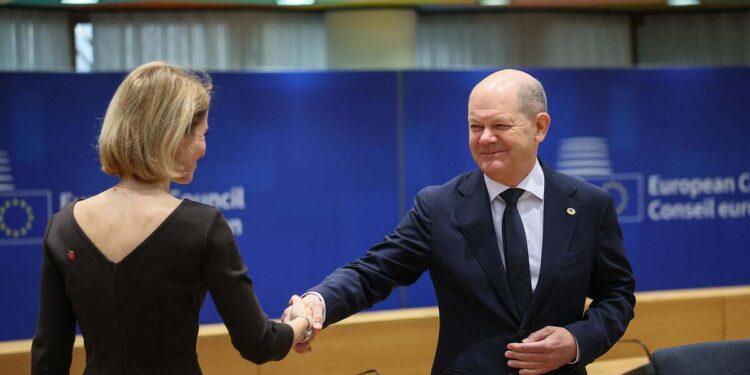The EU lays the groundwork to not lose the race against the United States and China. It begins to outline the new European Pact for Competitiveness that sets the priorities for the next legislative cycle, following the European elections in June. Member States agree on the objective: advancing the integration of the single market is key. Although not on the way to achieve it. And the EU shows a division between large and small countries to create a real single market.
The Twenty-Seven have asked the European Commission to work towards creating the conditions for a European supervisory authority, one of the most contentious points to date to advance in the capital markets union. In fact, while France and Germany advocated for a figure to oversee the financial markets at the community level, an idea that both Luxembourg and Ireland were reluctant to. “The idea of centralized supervision is not in the interest of all Member States, not the smaller ones,” said Irish Prime Minister Simon Harris upon arrival.
Another point on which the Heads of State and Government have agreed in the conclusions of the EU Summit, which took place this Wednesday and Thursday, is to harmonize certain aspects of national corporate insolvency frameworks. They also call for improvements in conditions for cross-border investments, both institutional and retail.
However, the conclusions also reflect a lowering of ambitions by calling for a “policy change” instead of the “paradigm shift” it initially demanded to strengthen its competitiveness.
It is clear that advancing in the single market is necessary to boost European competitiveness, the formulas to achieve this goal are no longer so consensual. Estonian Prime Minister Kaja Kallas opposed fiscal harmonization among EU countries: “as a small country, we do not have competitive advantages and we have to compete with the tax system,” she highlighted expressing her opposition.
Spain is in favor of this idea. Prime Minister Pedro Sánchez has indicated: “we neither propose State aids like the large economies, nor fiscal dumping like other Member States.” Asked whether Spain would join the group of Member States led by the Franco-German axis that propose to take the lead in the capital markets union, Sánchez was cautious and simply stated that he would study the proposal.
EU leaders have worked on the report prepared by former Italian Prime Minister Enrico Letta, which advocates for progress towards a union of savings and investments, to establish energy, telecommunications, and financial markets as strategic sectors, and to add innovation and research to the freedom of movement in the single market.
Letta’s list of proposals is based on an analysis in which the single market must adapt to a geopolitical context different from the one in which it was born. A context in which about €300 billion of European families’ savings in the EU markets go abroad, mainly to the U.S. economy, “due to the fragmentation of our financial markets,” as the report points out.


